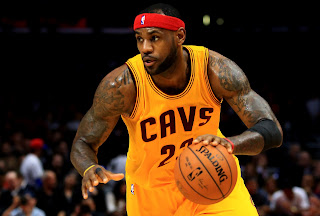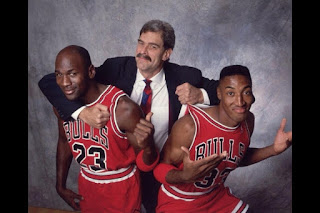In order to provide you with a more personalized and responsive service we need to remember and store information about how you use this Website. This is done using small text files called cookies. Cookies contain small amounts of information and are downloaded to your computer or other device by a server for this Website. Your web browser then sends these cookies back to this Website on each subsequent visit so that it can recognize you and remember things like your user preferences. You can find more detailed information about cookies and how they work at http://www.aboutcookies.org/.
Whenever you use this Website, information may be collected through the use of cookies and other technologies. By using this Website you agree to our use of cookies as described in this Cookie Notice and also to the use of cookies on the other country, regional or practice specific websites contained in deloitte.com that you may visit, as described in their accompanying cookie notices.
What cookies do we use and why?
Some of the cookies we use are necessary to enable you to move around the Website and use its features such as accessing secure areas that may contain content for registered users.We also use functional cookies to record information about the choices you have made and to allow us to tailor this Website to our users; for example, to remember your language or region or that you have already completed a survey. This information is usually anonymized and is not used for any purpose unrelated to this Website.
We or our service providers also use analytic services to help us understand how effective our content is, what interests our users have, and to improve how this Website works. In addition, we use web beacons, tracking pixels and similar services to understand more about the visitors to this Website, and to count visitor numbers and performance cookies to track how many individual users access this Website and how often. This information is used for statistical purposes and to improve how this Website works and it is not our intention to use such information to personally identify any user. However, if at any time you register and sign into this Website we may combine such data with information from our web analytic services and cookies to analyze how you use this Website in more detail. Information on how to control these analytics cookies is set forth below, in Managing Analytics Cookies.
This Website does not use targeting cookies to deliver targeted advertising on this Website; however, these cookies may be used on third party websites on which we occasionally advertise, to track the success of those advertising campaigns. We may use web beacons (also known as pixel tags) to determine which users have come to this Website after viewing an advertisement we have served on such third party websites. We also work with such third parties to collect data so that we can determine the effectiveness of our ads and serve ads targeted to your interests. The use of web beacons does not provide us with any personal information and we do not use this technology to access your personal information. It is used only to compile aggregated data about users who visit this Website and to gauge the effectiveness of our ads. Web beacons do not place information on your device, but may work in conjunction with cookies to monitor activity. You cannot remove or block web beacons, but you can remove or block cookies with which they work to block the collection of information about your user activity. Please see the information below regarding Browser Controls.
Please contact us if you would like more detailed information on the cookies we use.
How to control cookies?
By using this Website you agree that we can place cookies on your computer or device as explained above. However, you can control and manage cookies in various ways. Please bear in mind that removing or blocking cookies can impact on your user experience and parts of this Website may no longer be fully accessible.Do Not Track and Browser controls
Current “Do Not Track” initiatives are not recognized by this Website, however, most browsers will allow you to see what cookies you have and delete them on an individual basis or block cookies from particular or all websites. Be aware that any preference you have set will be lost if you delete all cookies, including your preference to opt-out from cookies as this itself requires an opt-out cookie to have been set. You cannot remove or block web beacons, as they form part of the content of the web pages rather than placing information on your computer. However, because they work in conjunction with cookies, turning off cookies will prevent web beacons from tracking your user activity. The web beacon will record an anonymous visit, but cookies will not be recorded. For more information on how to modify your browser settings to block or filter cookies, see http://www.aboutcookies.org/ or http://www.cookiecentral.com/faq/.You can also opt out of interest-based advertising served by certain websites by following the instructions provided by that particular website. Commonly used methods include clicking on the Ad Choices icon (please see http://www.youradchoices.com/) or changing your preferences for advertising after you have logged into the website.
Managing Analytics cookies
You can opt-out of having your anonymized browsing activity within websites recorded by analytics cookies. We use the following service providers and you can learn more about their privacy policies and how to opt-out of their cookies by clicking on following links:Adobe: http://www.adobe.com/privacy/opt-out.html
Google Analytics: http://www.google.com/analytics/learn/privacy.html
Managing Local Shared Objects or Flash Cookies
A local shared object or flash cookie is like most other browser cookies except that it can store additional types of information. These cookies cannot be controlled using the mechanisms listed above. Some parts of this Website use these types of cookies to store user preferences for media player functionality and without them some video content may not play properly. These cookies can be controlled manually by visiting the Adobe website. http://www.macromedia.com/support/documentation/en/flashplayer/help/settings_manager07.htmlSocial buttons
We use ‘social buttons’ to enable our users to share or bookmark web pages. These are buttons for third party social media sites. Through these social buttons, these sites may provide non-personal information about you such as log information about your activities on the Internet, including on this Website. Please review the respective terms of use and privacy policies of these sites to understand exactly how they use your information and to find out how to opt-out, or delete, such information.External web services
We sometimes use external web services on this Website to display content within the web pages of this Website, for example to display images, show videos or run polls. As with the social buttons, we cannot prevent these sites, or external domains, from collecting information on your use of this embedded content.Email Communications
We may also use tracking technologies to determine whether you have read, clicked on, or forwarded certain email communications we send to you so that we can make our communications more helpful and interesting. If you do not wish us to confirm whether you have opened, clicked on or forwarded our communications, you will need to unsubscribe, as it is not possible for us to send these emails without tracking enabled. Registered subscribers can update their communication preferences at any time by contacting us, or you can unsubscribe following the instructions in the individual email communications you receive from us.We may modify or amend this Cookie Notice from time to time at our discretion. When we make changes to this notice, we will amend the revision date at the top of this page, and such modified or amended Cookie Notice shall be effective as to you and your information as of that revision date. We encourage you to periodically review this Cookie Notice to be informed about how we are using cookies.









































